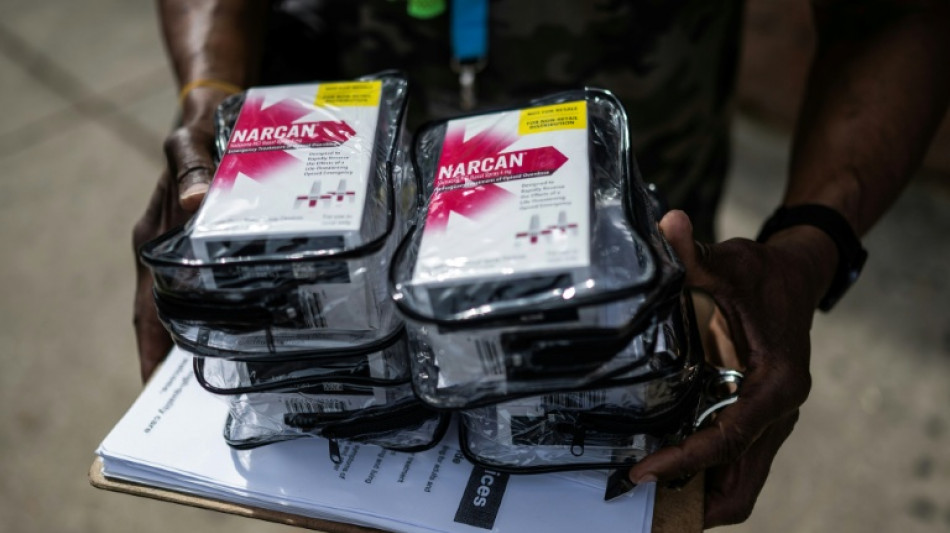
-
 'Not our enemy': Rush to rearm sparks backlash in east Germany
'Not our enemy': Rush to rearm sparks backlash in east Germany
-
West Indies 110-0, trail by 465, after Conway's epic 227 for New Zealand

-
 Arsonists target Bangladesh newspapers after student leader's death
Arsonists target Bangladesh newspapers after student leader's death
-
Volatile Oracle shares a proxy for Wall Street's AI jitters
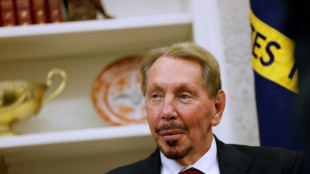
-
 Tears at tribute to firefighter killed in Hong Kong blaze
Tears at tribute to firefighter killed in Hong Kong blaze
-
Seahawks edge Rams in overtime thriller to seize NFC lead

-
 Teenager Flagg leads Mavericks to upset of Pistons
Teenager Flagg leads Mavericks to upset of Pistons
-
Australia's Head fires quickfire 68 as England's Ashes hopes fade

-
 Conway falls for 227 as New Zealand declare at 575-8 in West Indies Test
Conway falls for 227 as New Zealand declare at 575-8 in West Indies Test
-
Japan hikes interest rates to 30-year-high

-
 Brazil's top court strikes down law blocking Indigenous land claims
Brazil's top court strikes down law blocking Indigenous land claims
-
Conway falls for 227 as New Zealand pass 500 in West Indies Test

-
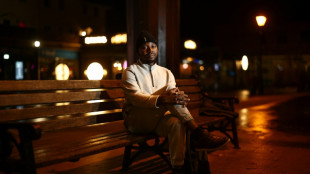 'We are ghosts': Britain's migrant night workers
'We are ghosts': Britain's migrant night workers
-
Asian markets rise as US inflation eases, Micron soothes tech fears

-
 Giant lanterns light up Christmas in Catholic Philippines
Giant lanterns light up Christmas in Catholic Philippines
-
TikTok: key things to know
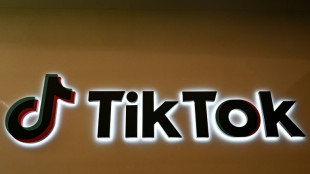
-
 Putin, emboldened by Ukraine gains, to hold annual presser
Putin, emboldened by Ukraine gains, to hold annual presser
-
Deportation fears spur US migrants to entrust guardianship of their children
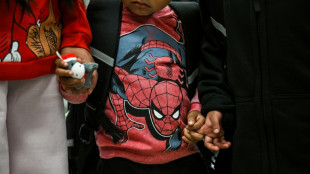
-
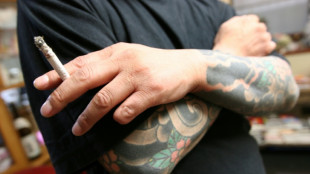 Upstart gangsters shake Japan's yakuza
Upstart gangsters shake Japan's yakuza
-
Trump signs $900 bn defense policy bill into law

-
 Stokes's 83 gives England hope as Australia lead by 102 in 3rd Test
Stokes's 83 gives England hope as Australia lead by 102 in 3rd Test
-
Go long: the rise and rise of the NFL field goal

-
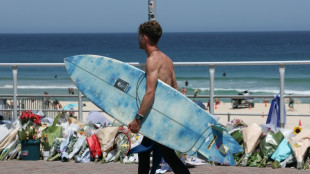 Australia announces gun buyback, day of 'reflection' after Bondi shooting
Australia announces gun buyback, day of 'reflection' after Bondi shooting
-
New Zealand Cricket chief quits after split over new T20 league

-
 England all out for 286, trail Australia by 85 in 3rd Test
England all out for 286, trail Australia by 85 in 3rd Test
-
Australian announces gun buyback, day of 'reflection' after Bondi shooting
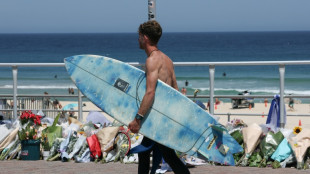
-
 Joshua takes huge weight advantage into Paul fight
Joshua takes huge weight advantage into Paul fight
-
TikTok signs joint venture deal to end US ban threat
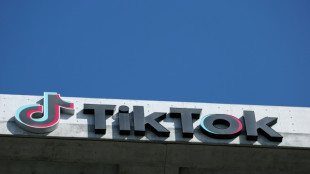
-
 Conway's glorious 200 powers New Zealand to 424-3 against West Indies
Conway's glorious 200 powers New Zealand to 424-3 against West Indies
-
WNBA lockout looms closer after player vote authorizes strike

-
 Honduras begins partial vote recount in Trump-dominated election
Honduras begins partial vote recount in Trump-dominated election
-
Nike shares slump as China struggles continue
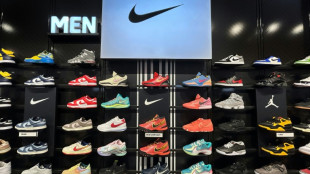
-
 Hundreds swim, float at Bondi Beach to honour shooting victims
Hundreds swim, float at Bondi Beach to honour shooting victims
-
Crunch time for EU leaders on tapping Russian assets for Ukraine
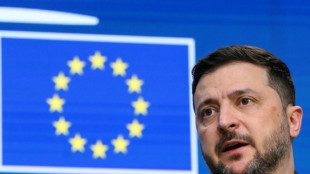
-
 Pope replaces New York's pro-Trump Cardinal with pro-migrant Chicagoan
Pope replaces New York's pro-Trump Cardinal with pro-migrant Chicagoan
-
Trump orders marijuana reclassified as less dangerous drug
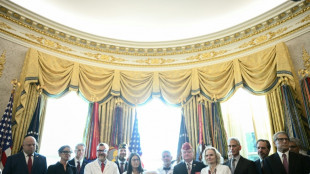
-
 Rams ace Nacua apologizes over 'antisemitic' gesture furor
Rams ace Nacua apologizes over 'antisemitic' gesture furor
-
McIlroy wins BBC sports personality award for 2025 heroics

-
 Napoli beat Milan in Italian Super Cup semi-final
Napoli beat Milan in Italian Super Cup semi-final
-
Violence erupts in Bangladesh after wounded youth leader dies
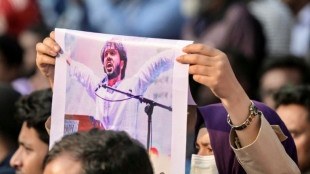
-
 EU-Mercosur deal delayed as farmers stage Brussels show of force
EU-Mercosur deal delayed as farmers stage Brussels show of force
-
US hosting new Gaza talks to push next phase of deal
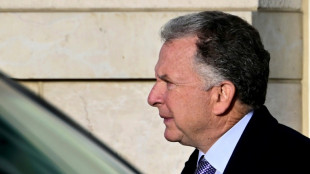
-
 Chicago Bears mulling Indiana home over public funding standoff
Chicago Bears mulling Indiana home over public funding standoff
-
Trump renames Kennedy arts center after himself

-
 Trump rebrands housing supplement as $1,776 bonuses for US troops
Trump rebrands housing supplement as $1,776 bonuses for US troops
-
Harrison Ford to get lifetime acting award
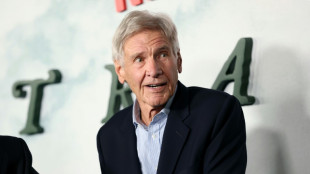
-
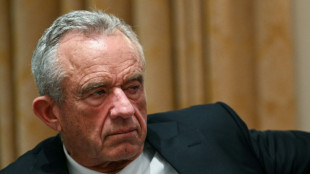 Trump health chief seeks to bar trans youth from gender-affirming care
Trump health chief seeks to bar trans youth from gender-affirming care
-
Argentine unions in the street over Milei labor reforms
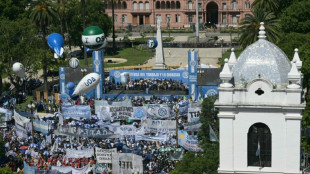
-
 Trump signs order reclassifying marijuana as less dangerous
Trump signs order reclassifying marijuana as less dangerous
-
Famed Kennedy arts center to be renamed 'Trump-Kennedy Center'


US overdose capital Baltimore on long road to recovery
Carrying a bag filled with the overdose-reversing drug naloxone, Adam Trionfo roams the brick-lined streets of one of America's oldest port cities, Baltimore.
The 40-year-old and his small team visit neighborhoods considered "hot spots" for drug trafficking to hand out the precious antidote, sold under the brand name Narcan.
The easy-to-use nasal spray has become a key tool in the fight against the deadly US opioid crisis, claiming 750,000 lives between the late 1990s and 2022.
"Just over the past week, we distributed 200 Narcan kits," Trionfo, who oversees an addiction assistance program with the local branch of Catholic Charities, told AFP.
On their route, the team spots a man sprawled out amid a pile of rubbish in the corner of a stairwell. They hand him a box of Narcan and a brochure about their organization.
The man takes it with one hand, as he awkwardly hides a syringe behind his back.
Their last Narcan kit goes to another man, legs covered in brown scars, who is waiting near a dilapidated building.
These scenes are not uncommon in this East Coast city, which is located about 50 kilometers (31 miles) from Washington and is renowned for endemic crime.
Baltimore was the setting of the hit television series "The Wire" in the early 2000s, depicting its burgeoning drug scene from a variety of angles.
And last year, the New York Times dubbed the city the "American overdose capital."
Between 2018 and 2022, the drug-related mortality rate was nearly twice as high as in any other major American city. The leading killer: fentanyl.
- 'Tremendous efforts' -
Since the height of the opioid crisis in 2021, the outlook has improved in much of the country, including in Baltimore.
The number of fatal overdoses in the city plummeted by 35 percent last year, to 680 down from 1,043 in 2023.
The city's proactive policies, coupled with preventative work done by Catholic charities in Baltimore's communities have helped make a dent in the problem.
"We've had tremendous efforts throughout the city to get people into treatment, and then we've also had tremendous efforts in getting Naloxone out there," said Michael Fingerhood, head of addiction medicine at Johns Hopkins Bayview Medical Center.
Distributed broadly for about a decade, Narcan has worked like a "fire extinguisher," Fingerhood said.
In Baltimore, Narcan is now available everywhere: pharmacies, vending machines throughout the city, even in libraries.
- Funded by restitution -
The drop in mortality in Baltimore is also linked to the composition of the fentanyl being sold there, Fingerhood said.
"The drug supply has less potent fentanyl and has additives that are less likely to cause overdose."
Awareness of the risks associated with the powerful synthetic opioid has also grown among users, pushing them to be more "cautious," said Bakari Atiba, community engagement director at Charm City Care Connection.
The nonprofit assists addicts in Baltimore -- known as Charm City -- and recently received funding from a restitution program fueled by lawsuits against opioid manufacturers and distributors.
"I'm not saying people are going to stop using," Atiba said. "That's not even our goal."
"It's about meeting people where they are, making sure they're safe, making sure they're supported, and making sure they have pathways to recovery if they want it."
K.Brown--BTB
